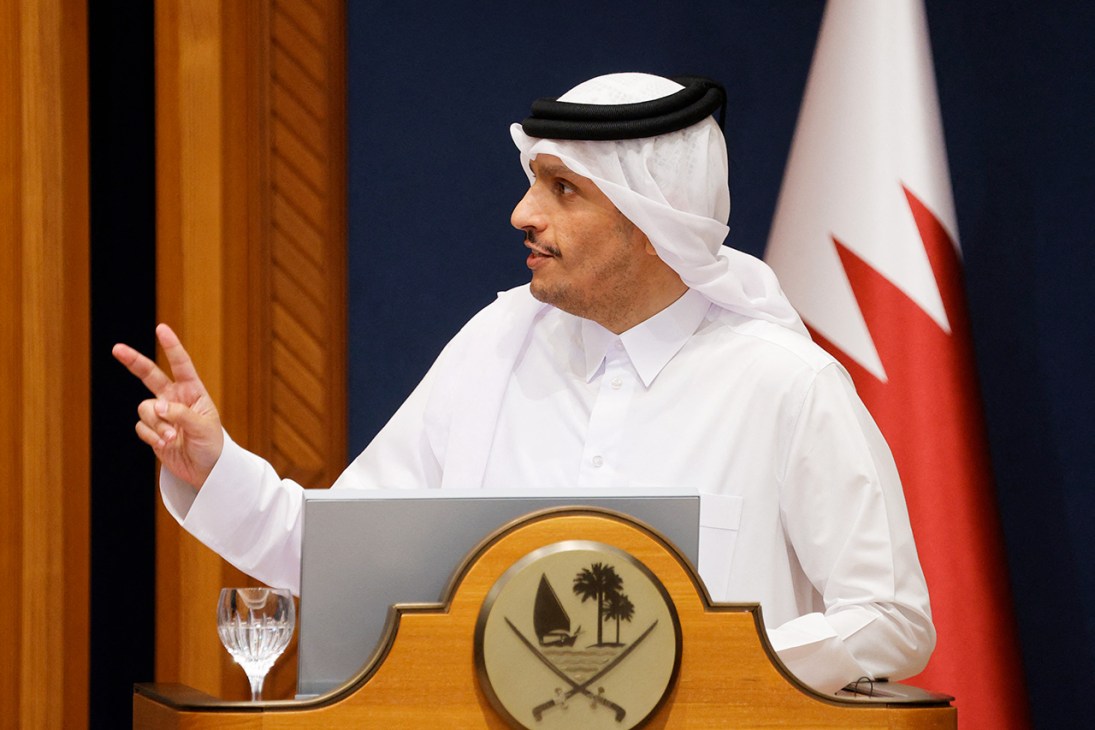Here in the Gulf, we know better than to confuse a pause with peace
The Arabian Gulf was wide awake on Monday night as shaky footage of Iranian missiles over Qatari skies filled our screens. While it was one of the politest acts of aggression ever witnessed, the region’s centres of commerce, from Doha to Dubai, are rightly concerned. Iran had launched a carefully telegraphed barrage of missiles at the US military’s Al Udeid Air Base in Qatar – home to some 10,000 American personnel – in retaliation for Washington’s strike on three of its nuclear sites over the weekend. Doha had been given advance notice and residents knew that something was coming when the country’s airspace was closed and the US and UK embassies told all citizens to remain indoors. Then, a spectacle unfolded in the sky: striking and surreal but ultimately bloodless.
The mood in Dubai is a little more introspective today – not tense or fearful so much as eerie. There’s the usual rush into the financial district; bookings for brunches and beach clubs haven’t been cancelled; the school run continues. But people are walking a little more slowly and perhaps even speaking a tad more quietly. Everyone was glued to their phones last night because, this time, it felt different. It was right above us.
In Doha, I’m told that the mood is less serene. Flights are resuming but the city remains on high alert – and it must. The Qatari government is balancing too many delicate relationships – with the US, Hamas and Iran – and now dealing with the prospect of incoming missiles. Qatar has played the middleman better than most countries over the years but the best middlemen know when things are getting too hot.

If Iran’s attempt to hit a US base in Qatar looked like the most civilised missile attack in modern memory, that’s because it was. Abbas Araghchi, Iran’s foreign minister, made it clear that the goal of the attack was deterrence, not death. Donald Trump even thanked Iran for the warning, calling the missiles “weak”, and suggested that both parties had essentially done what they needed to do. Israel and the US got to flex their might as Operation Midnight Hammer severely damaged Iran’s nuclear programme. Iran got to save face with a dramatic but largely theatrical response. And Trump got to talk about peace. But what about the region? What about those of us watching from Dubai and Doha, cities that thrive on calm and continuity?
For many in the Gulf, especially the vast expat community that lives between the Middle East and Europe, the real anxiety wasn’t about politics or power plays – it was about planes. British Airways briefly grounded its routes, Flydubai held back for a while and parents started quietly wondering whether summer holidays to the Med would still happen. In truth, most people in Qatari and Emirati cities aren’t concerned about the big diplomatic picture. They’re thinking practically: will tensions affect oil prices? Will airspace closures become the new normal? For all the choreography, there’s still a deep unease. Iran is weakened but also more desperate.
Whether a lasting ceasefire will soon materialise depends on who you ask. Neither Israel nor Iran appeared fully committed to Trump’s script and tit-for-tat missile attacks quickly resumed on Tuesday morning. Can Tehran really regard Trump as a trusted broker of peace when, only days ago, he floated the idea of regime change in Iran? And can Israel be convinced to pull back on its hard-won military advantage when every instinct will push its leaders to double down and deny Tehran any chance of rebuilding? There are motivations on both sides to continue a conflict in which each sees the other as an existential threat. So, yes, the skies might have cleared and for now the missiles have stopped. But beneath the calm, the fundamentals remain unchanged. Here in the Gulf, we know better than to confuse a pause with peace. And in cities such as Dubai and Doha – outwardly calm, inwardly braced – we’ll keep watching the skies just in case.



